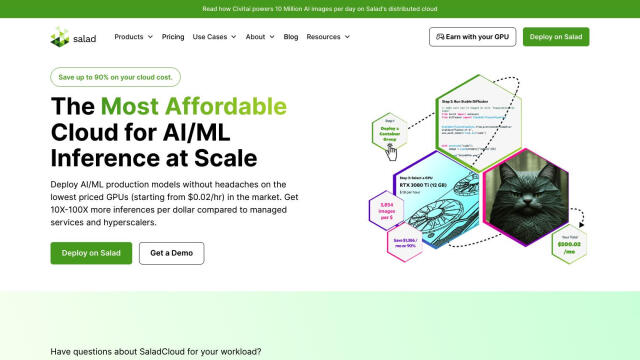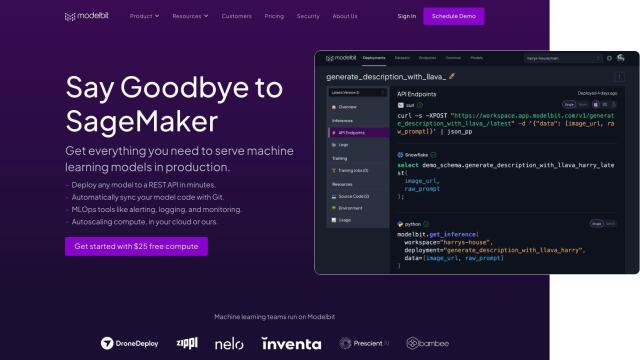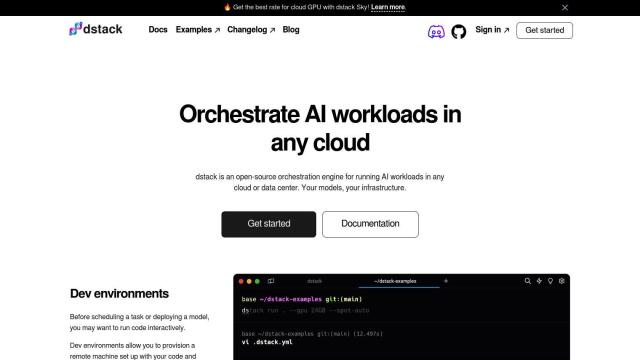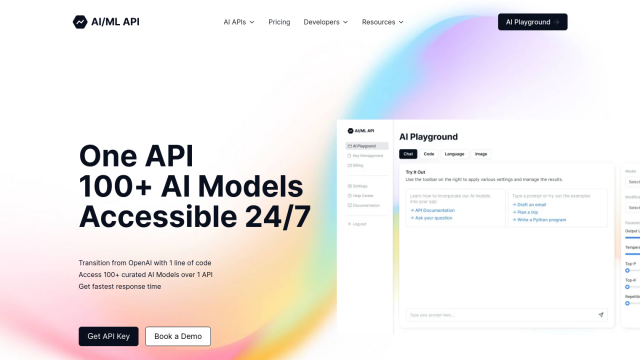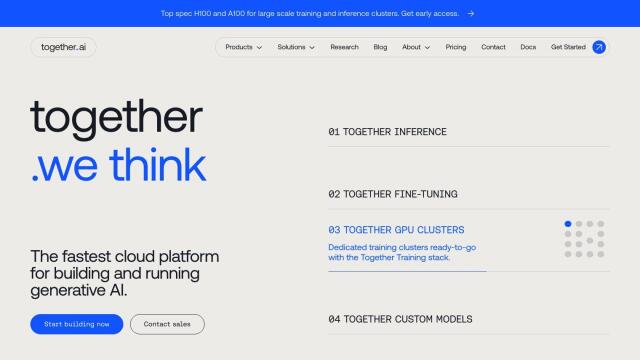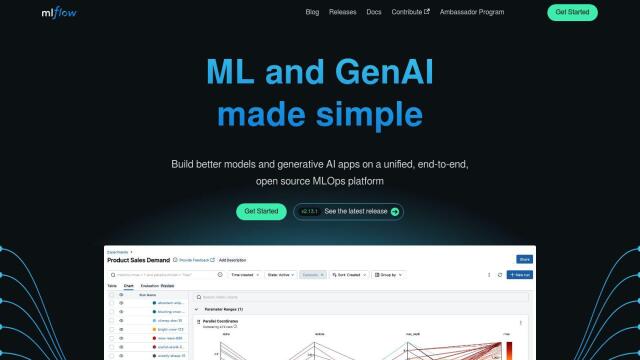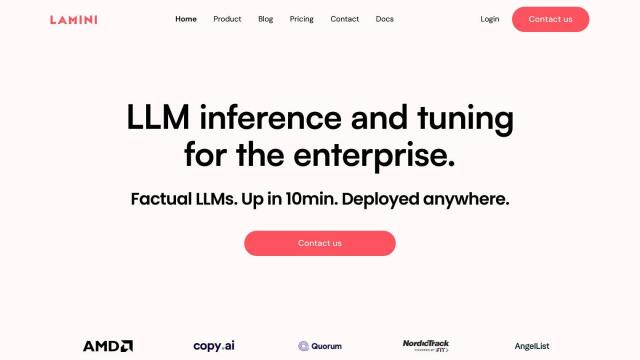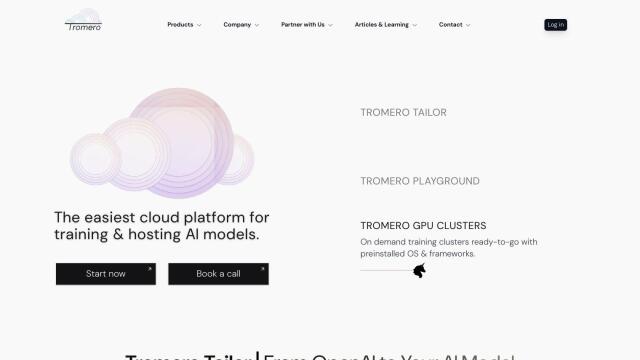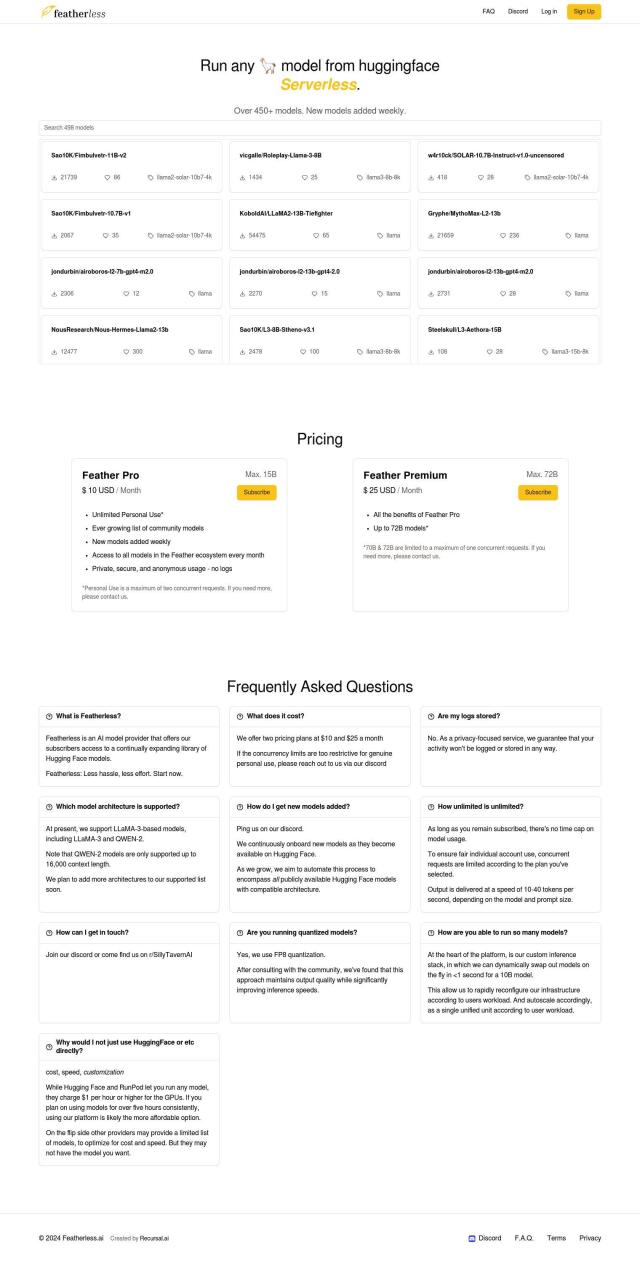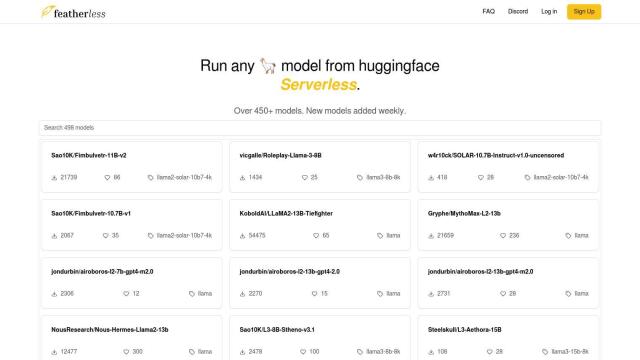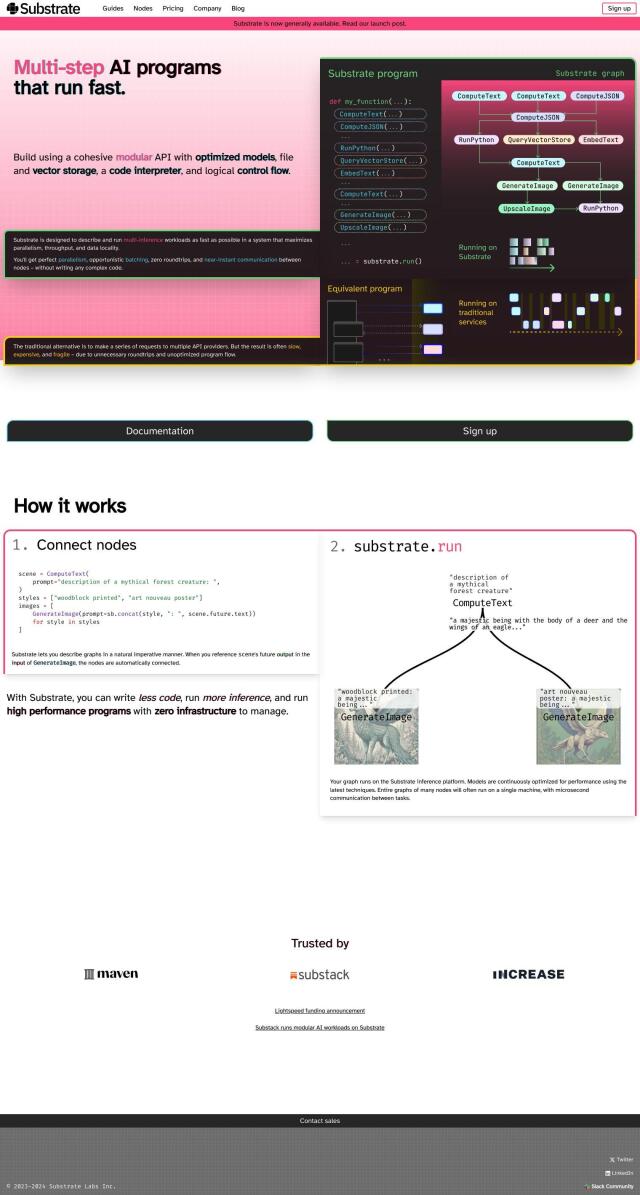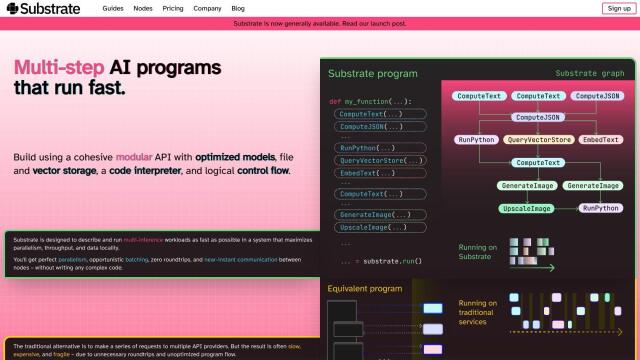Question: I need a platform that supports serverless ML inference with fast cold start times, do you know of any options?

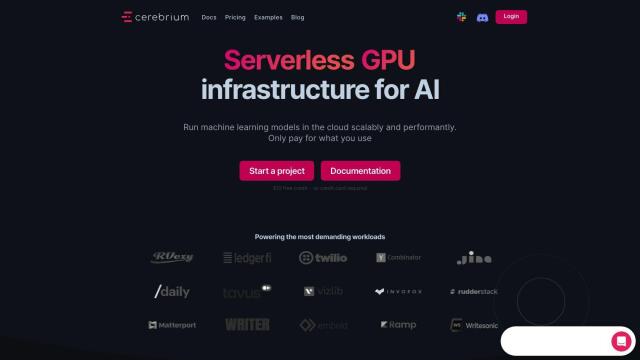
Cerebrium
If you need a platform for serverless ML inference with good cold start times, Cerebrium is worth a look. It's a serverless GPU infrastructure for training and serving machine learning models, with costs that can be lower than a traditional approach because of pay-per-use pricing. Cerebrium promises 3.4s cold starts, 5000 requests per second and 99.99% uptime, and it's got features like real-time logging and monitoring, infrastructure as code and customizable status codes to help you debug and monitor performance.

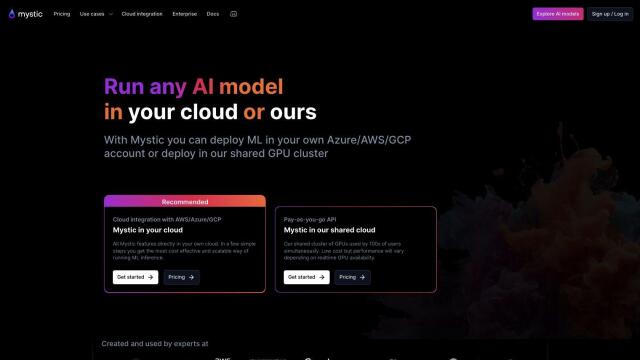
Mystic
Another strong contender is Mystic, which is designed to make it easier to deploy and scale Machine Learning models with serverless GPU inference. Mystic integrates with AWS, Azure and GCP and supports multiple inference engines. It's got cost optimization features like spot instances and parallelized GPU usage, and it's got a managed Kubernetes environment and an open-source Python library to automate scaling. It's geared for teams with multiple workloads, letting data scientists concentrate on model development, not infrastructure.

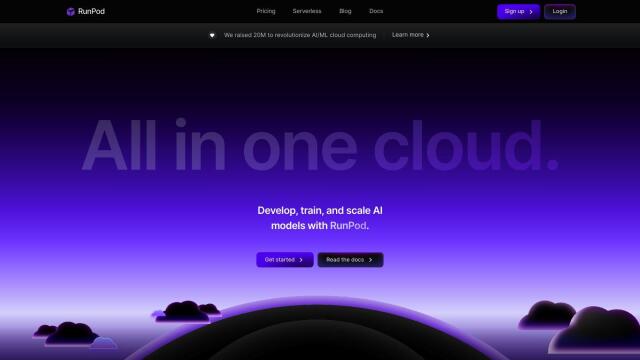
RunPod
RunPod is another strong contender with a globally distributed GPU cloud that lets you spin up GPU pods instantly and serve ML models with serverless ML inference and autoscaling. It supports a range of GPUs and lets you hot-reload locally made changes instantly, and it's geared for developers and data scientists. RunPod offers more than 50 preconfigured templates for frameworks like PyTorch and TensorFlow, and its CLI tool automates provisioning and deployment.


Predibase
If you're working on large language models, Predibase is a low-cost, high-performance way to fine-tune and serve LLMs. It offers free serverless inference for up to 1 million tokens per day and enterprise-grade security features, and it charges on a pay-as-you-go pricing model. Predibase supports a wide range of models and offers dedicated deployments with usage-based pricing, so it's good for both individuals and enterprises.





